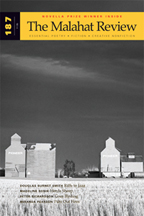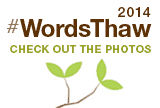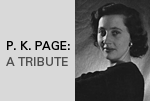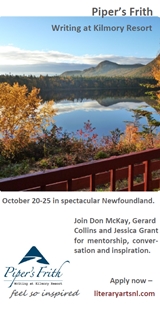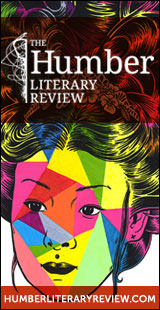Interviews
Like Thunder After the Lightning:
Will Johnson in Conversation with Madeline Sonik
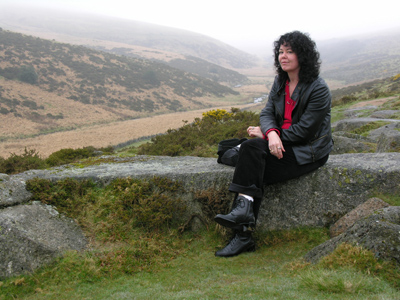 Malahat volunteer, Will Johnson, interviews 2012 Constance Rooke Creative Nonfiction Prize judge, Madeline Sonik about her writing, what she's looking for in a winning entry, and her views on writing contests.
Malahat volunteer, Will Johnson, interviews 2012 Constance Rooke Creative Nonfiction Prize judge, Madeline Sonik about her writing, what she's looking for in a winning entry, and her views on writing contests.Your book Afflictions & Departures was recently a finalist for the Charles Taylor Non-Fiction prize. Can you tell us about that experience?
It was literally an “awesome” experience. Unlike other national nonfiction prizes, one of the mandates of the Charles Taylor Prize is to promote the works of their finalists. There were radio, television, and print interviews. Both Maclean’s and The Huffington Post ran excerpts from all our books –there were CBC blogs, Globe &Mail questions and answers, readings on As It Happens and a three page insert in The New Yorker. I was flown to Toronto and back twice, put up at The King Edward hotel, and given an expense account.
It was very much like one of those compensatory dreams writers have when things are really looking bleak…and things had been looking quite bleak for me just prior to the nomination. Originally, I couldn’t get a review for the book.
When I was in Toronto, and the book was getting all this attention, I kept pinching myself and trying to remember if there was any other way I could tell if I really was awake.
Besides the surreal quality of the experience, it was an incredible learning experience. In the past, I’d done a few promotional things for other books, but never anything like this. I had to learn a lot about presentation in a very short time.
What are you currently working on and when can fans expect to read your next book? Would you consider delving into memoir again?
I’m currently working on a second memoir collection. This one deals with my life in England in the mid to late 70s. I’d dropped out of school in Canada, and at that time, it was impossible for a Canadian drop out to negotiate her way back into the educational system in England. I took a job, first as a waitress in a rather seedy seaside hotel, then as a live-in chamber maid in a slightly less seedy hotel, and eventually as a resident toilet cleaner in a girl’s boarding school. This was during the time that Margaret Thatcher was coming to power, and the old Great Britain was giving way to a new euro-type Britain. I’m also finishing up a collection of short stories that I’ve been working on for several years.
When judging a nonfiction contest, what makes one particular piece stand out from the rest? What qualities are you looking for?
I think first and foremost I look for brilliant writing, which I think can be summed up as precision with language and technique.
Secondly, I look for a good story. I want to read a piece that’s engaging from beginning to end, a piece that’s slow in its revelations and not heavy handed with hints.
Thirdly, I look for a good ending. I think endings can be the most difficult things to write. A really good ending needs to be organically “the right ending”—neither predictable nor forced. Getting the right ending can take a lot of time. Sometimes you just have to attentively wait for it, like thunder after the lightning.
Writing contests are an important part of the literary landscape for emerging writers. What has your experience been with writing contests, and how does that inform your role as a judge?
I do think contests are very important for writers, both established, emerging, and new. I think they tend to egg writers on, push them to persist, and sometimes give them a reason to write when everything else in the universe is making them feel they ought to give it up.
Over the years I’ve entered many contests, and the wins have always given me a boost; the losses have always given me an impetus to look really critically at my work and try to improve it if I can.
I’ve also learned that judges can’t be objective—when a judge says, “this piece is better than that piece,” what she’s really saying is “I value this particular type of writing over that particular type of writing.” So not winning a contest doesn’t mean that you haven’t written a brilliant piece; it just means that the judge’s preferences move in another direction.
Knowing this about judging, I think I’ll be more apt to question my initial favourites—to try to make sure I haven’t given someone’s piece short shrift because of my preferences.
Who are some Canadian nonfiction writers you admire?
I admire many Canadian nonfiction writers. Most recently, I’ve been reading the works of the other Charles Taylor Prize finalists: J. J. Lee is a brilliant word architect, Wade Davis’s work is infused with spirit, Charlotte Gill is a magician of the small, telling detail, and Andrew Westoll’s skills as a story teller are second to none. One of my former UBC professors, Andreas Schroeder, writes excellent nonfiction; his work is always witty and powerful. I enjoyed all of the biographies that Rosemary Sullivan has written. Both Patrick Lane’s and Lorna Crozier’s memoirs were brilliant and inspiring. M. A. C. Farrant’s work is also incredibly smart and funny, and I admirer Susan Olding’s excellent essays a great deal. The list goes on and on.

Will Johnson
* * * * * * * *
Check out the guidelines for our 2012 Constance Rooke Creative Nonfiction Prize.

